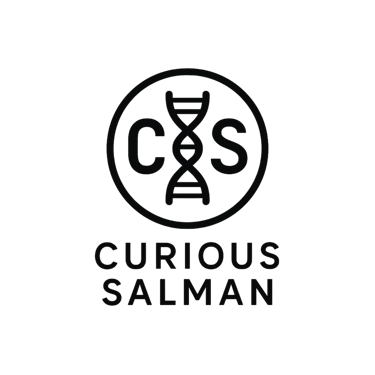What does your DNA do, while you are sleeping?
We will examine what happens to our DNA, while we are sleeping and insufficent sleep is bad or not
MOLECULAR BIOLOGY
Emirhan Salman
9/20/20252 min read
Have you ever wondered what happens to your body while you sleep? Could our DNA be quietly cleaning itself while we sleep? Could our bodies be working in shifts? Throughout this video, we will seek answers to some questions. If you have subscribed to the channel and clicked the like button,
let's open the window of curiosity and get started.
DNA is our genetic map in the cell nucleus. Factors we are exposed to throughout the day, such as oxidative stress, UV rays, and cellular metabolism, cause small damage to DNA. So what about sleep? Sleep doesn't just rest our minds; cells also undergo a major repair and maintenance operation during this time. Tasks such as fixing and organizing damage to the double helix structure of DNA and consolidating learned information accelerate during sleep.
A study shows that DNA damage in our nerve cells, or neurons, is repaired more quickly during sleep. Prolonged wakefulness causes this damage to accumulate. Sleep reverses this accumulation. Additionally, epigenetically: DNA methylation changes in people with poor sleep quality; some of our genes do not turn off or on as they should. This can lead to health problems in the long term: for example, impaired neurological function, immune system problems, or the aging process can be affected.
When you think about what your DNA is doing while you sleep, you might think, “It's sleeping too, it's resting.” But the truth is, sleep is one of the most active periods for DNA repair. You might think that a little bit of sleep deprivation won't hurt, but even one night of sleep deprivation can change epigenetic markers and disrupt gene expression. You might say, “I'll take a nap during the day and get my sleep at night,” but daytime sleep is not as effective as nighttime sleep in terms of all processes and hormone regulation. Everything in the body's functioning is based on a rhythm due to what we call the circadian system in humans, our biological clocks.
So how serious is this situation for night shift workers whose sleep patterns are disrupted?
Where is science headed?
Perhaps one day we will have devices that measure our DNA repair capacity, or thanks to biotechnology, drugs will be developed that support DNA repair in sleep-deprived individuals, or perhaps we will no longer need to sleep..
I hope the mysterious nature of sleep, why we need it, and why we shouldn't neglect it has become clearer.
Do you think we will ever be able to unravel all the mysteries of sleep and what we experience while sleeping?
Stay tuned, see you in the next video.
Links:
https://www.nature.com/articles/s41467-020-20513-5
https://www.nature.com/articles/s41467-019-08806-w
https://www.nature.com/articles/srep36804
https://www.nature.com/articles/s41598-018-38009-0
https://academic.oup.com/jcem/article-abstract/100/9/E1255/2836011?redirectedFrom=fulltext

Inspiration
Connecting science, creativity, and entrepreneurial spirit.
Explore
Engage
emirhansalman68668@gmail.com
© 2025. All rights reserved.
